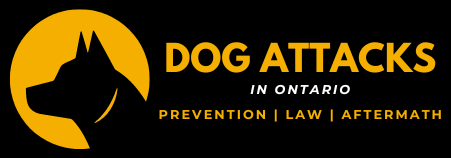
Operating a doggy daycare in Ontario comes with its joys and challenges. While providing a safe and enjoyable environment for furry friends, it’s essential to understand the legal landscape surrounding dog ownership and shared responsibility, especially in the event of a dog attack. This article explores the complexities of liability from the perspective of a doggy daycare owner, shedding light on the legal considerations and potential outcomes for all parties involved.
As a doggy daycare owner, you play a pivotal role in the care and supervision of the dogs entrusted to your facility. While you may not be the legal owner of the dogs in your care, you have a duty of care to ensure their safety and well-being while under your supervision. This duty extends to preventing dog-related incidents and taking appropriate measures to mitigate risks to both dogs and humans.
In the event of a dog attack at your daycare facility, liability may extend to various parties involved, including the dog’s owner, co-owners, dog walkers, and temporary caregivers. Understanding the nuances of ownership and shared responsibility is crucial for protecting your business and ensuring that all parties involved are held accountable for their actions.
One of the first steps in determining liability in a dog attack at a doggy daycare is to identify the owner or owners of the dog involved. While the legal owner of the dog bears primary responsibility for its actions under Ontario’s Dog Owners’ Liability Act (DOLA), liability may also extend to co-owners or individuals who share responsibility for the care or control of the animal. In cases where multiple individuals have ownership rights or custody of the dog, all parties may be held jointly liable for any harm caused by the dog.
Moreover, if the dog is under the care or control of a dog walker or temporary caregiver at the time of the attack, they may also share responsibility for the incident. While the primary liability still rests with the dog’s owner, temporary caregivers have a duty to exercise reasonable care and control over the dog to prevent harm to others. Failure to fulfill this duty may result in liability for any damages or injuries caused by the dog while under their care.
Understanding the legal implications of shared responsibility is crucial for doggy daycare owners to protect themselves and their business from potential liability. By implementing comprehensive policies and procedures for dog supervision, behavior assessment, and risk management, you can minimize the likelihood of dog-related incidents and mitigate legal risks. Additionally, ensuring that all staff members receive proper training and education on dog behavior and safety protocols can help prevent accidents and promote a safe and secure environment for both dogs and humans.
In the event of a dog attack at your doggy daycare, it is essential to take immediate action to address the situation and ensure the safety of all parties involved. This may include separating the dogs involved, providing medical attention to any injured individuals, and documenting the incident thoroughly for legal purposes. Cooperation with law enforcement and animal control authorities is also crucial in ensuring that the incident is investigated promptly and that appropriate measures are taken to prevent future incidents.
In conclusion, operating a doggy daycare in Ontario requires a thorough understanding of ownership, liability, and shared responsibility in the event of a dog attack. By implementing comprehensive policies and procedures for dog supervision and risk management, you can minimize legal risks and ensure the safety and well-being of all dogs in your care. Through proactive measures and diligent oversight, you can create a safe and enjoyable environment where dogs can thrive under your watchful eye.
